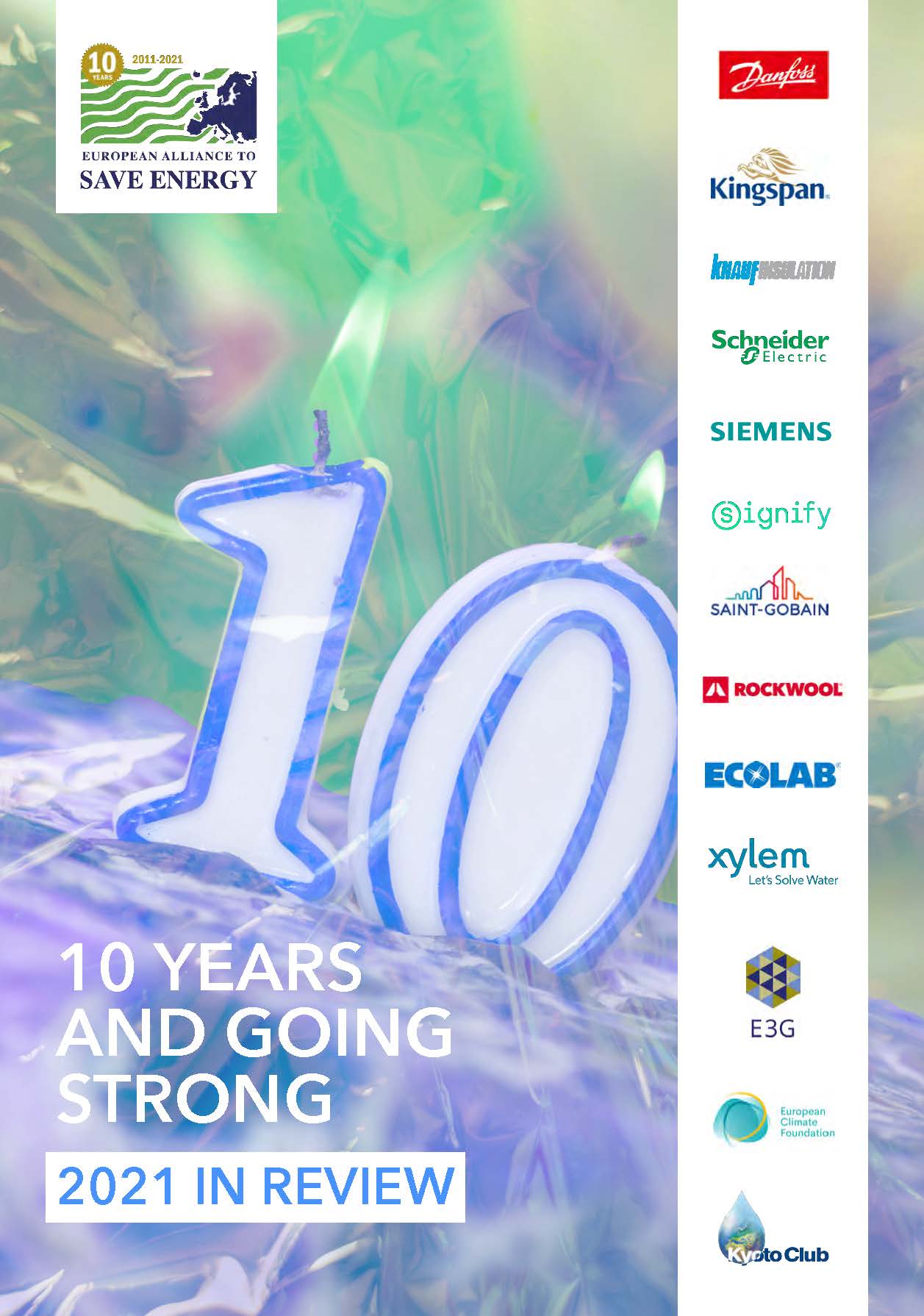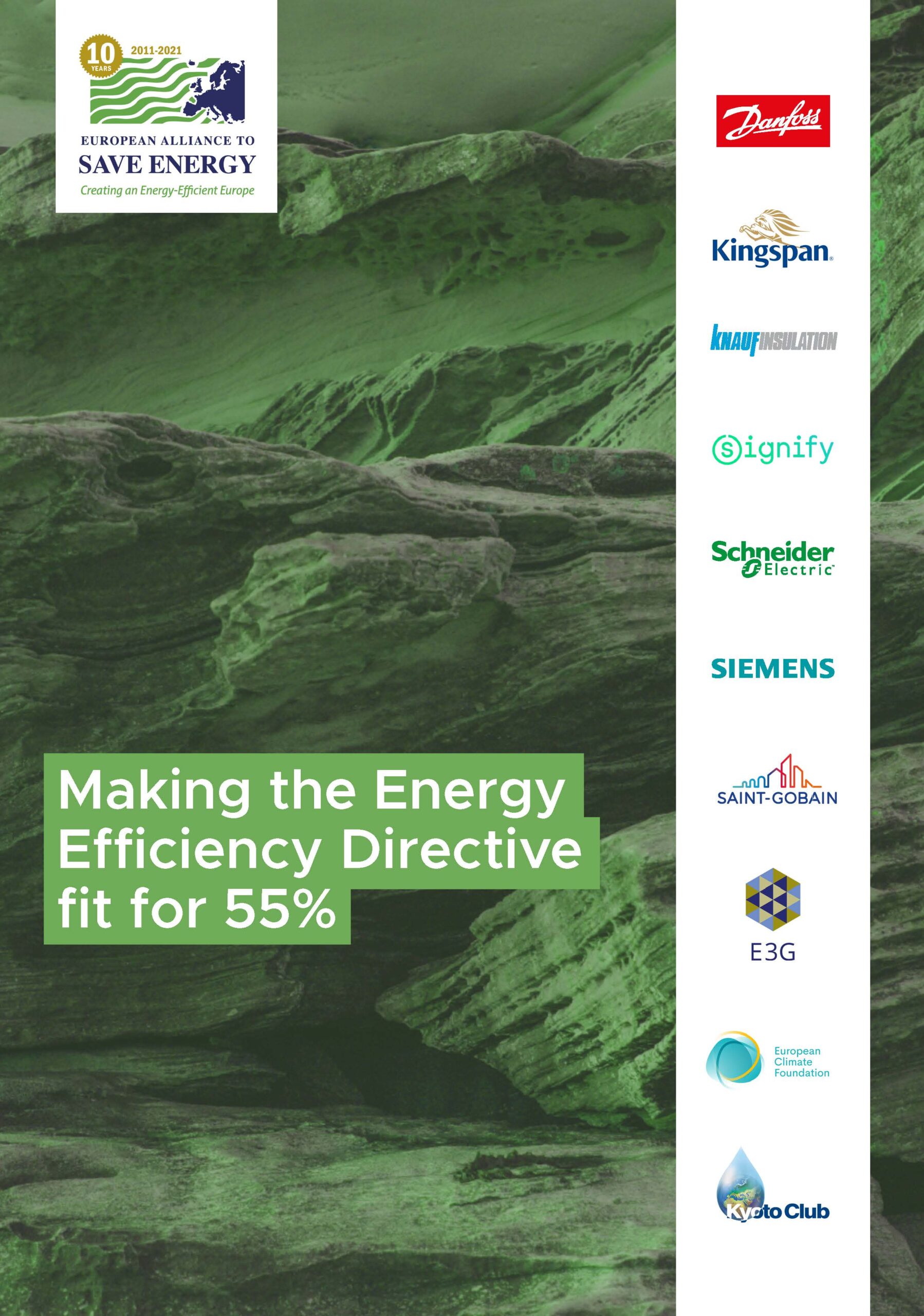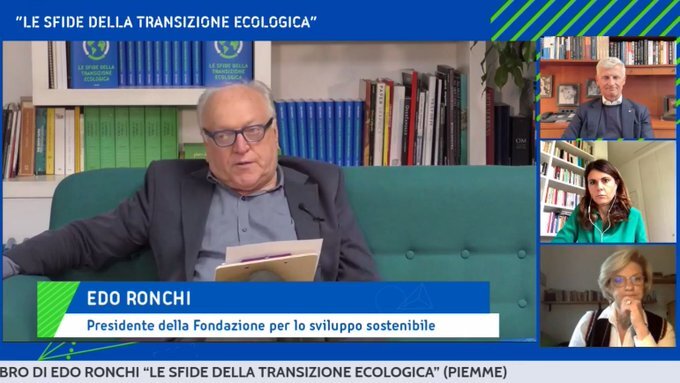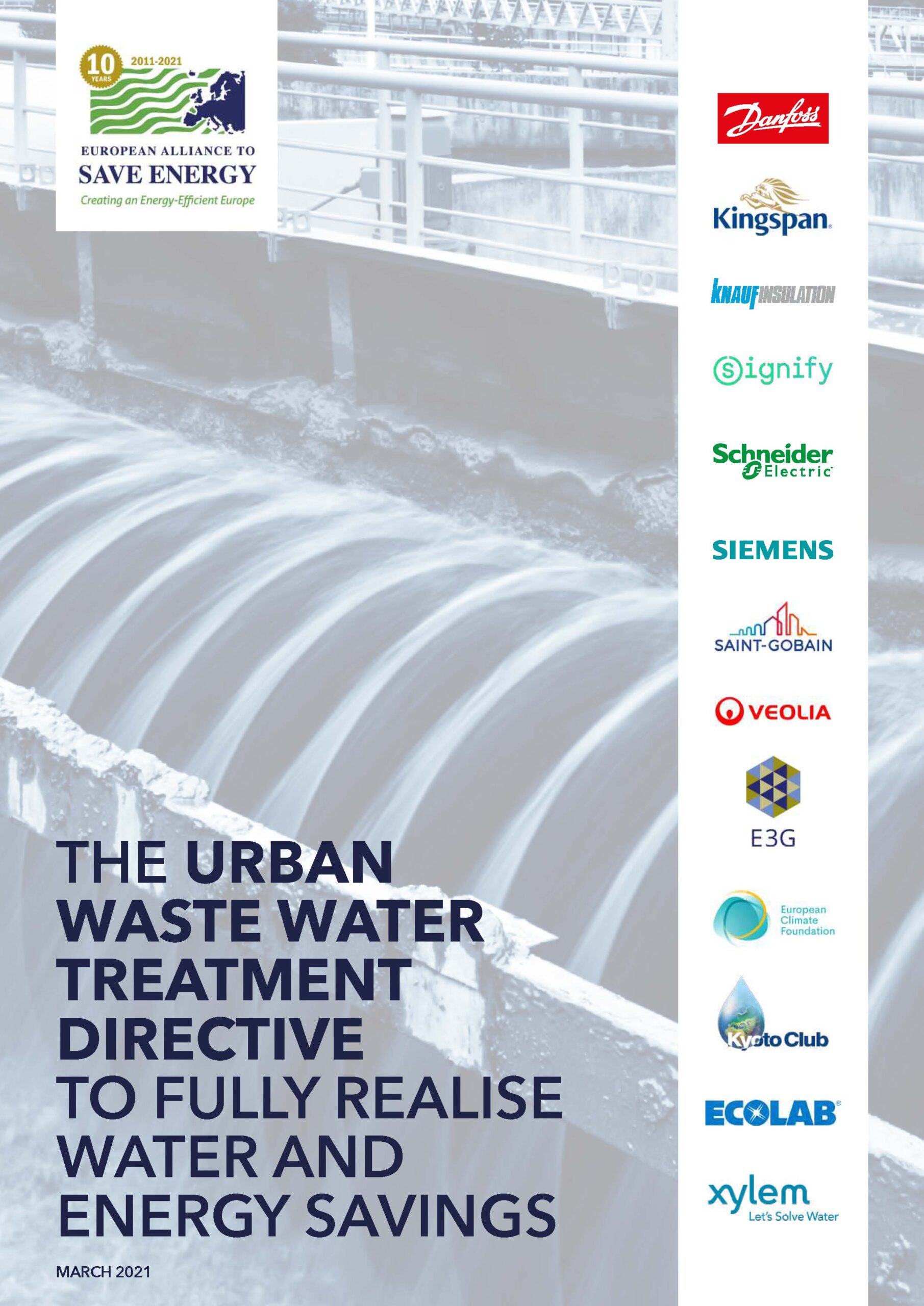The European Commission unveiled today its “Fit for 55” package to adapt the EU’s energy and climate legislation to the new goals of reducing emissions by at least 55% by 2030 and reach climate neutrality by 2050. The package includes the key proposal to revise the Energy Efficiency Directive (EED).
The EED proposal contains a number of positive elements. First of all, it enshrines the Energy Efficiency First principle (EE1st) in the Directive, introducing the much-needed obligation to apply the principle in the decision making of energy and non-energy sectors.
Other important elements are the extension of the public owned building renovation obligation to all public bodies, as well as the introduction of a new obligation to cut energy consumption of public bodies by at least 1.7% annually until 2030.
The revised Directive reinforces the annual energy savings obligations target after 2024 by 1.5%, almost doubling the current obligation. It also excludes the accountability of direct fossil fuel combustion technologies and clarifies that a reduction of the energy use through measures under the ETS cannot count towards the fulfilment of the energy savings obligation.
The European Alliance to Save Energy (EU-ASE) welcomes the Commission’s proposal to level up its ambition on the EU energy efficiency rules. By acknowledging the Energy Efficiency First principle, the Commission recognises its crucial role to drive a fast and fair transition in energy and non-energy sectors. However, we regret that the Commission chose not to propose binding national targets on energy efficiency; furthermore, we are critical of the Commission’s decision to propose an EU wide energy efficiency target that, even if mandatory, is not aligned with the EU decarbonisation pathway. The Commission introduces a 36% target for final energy consumption, which does not catch the cost-effective opportunities stemming of at least 40% energy efficiency target by 2030.
Monica Frassoni, President of the European Alliance to Save Energy said:
“The latest extreme weather events around the world and the ongoing Covid-19 pandemic show that there is no time left for half measures on climate and on economic recovery. The EU Energy Efficiency Directive must be fit for Europe’s decarbonisation goals as well as foster economic activities aiming at increasing efficiency in buildings, industry, and transport. In this sense, we think that the proposed targets should have been more ambitious. We will be working over the next months to demonstrate to the co-legislators that delivering on ambitious energy efficiency targets and fully applying the Energy Efficiency First principle is essential if the EU wants to be credible about reaching climate neutrality in time and avoid the worst effects of climate change. We hope that the European Parliament and the Council will further improve the current proposal”.
Harry Verhaar, Chair of the board of the European Alliance to Save Energy and Head of Public and Government Affairs at Signify said:
“To be able to fully unlock the multiple benefits of energy efficiency across the continent we need an ambitious EU legal framework. We welcome the revision of the Energy Efficiency Directive, which comes at a timely moment for Europe’s green recovery and clean energy transition. In particular, we praise the Commission for strengthening the provisions on the Energy Efficiency First principle. The principle needs to guide policymakers and investors in all energy planning, policy, and investment decisions. Energy efficiency is a powerful driver of sustainable economic growth and it is key to speed up our journey to a decarbonised Europe”.
Bertrand Deprez, Vice-Chair of the board of the European Alliance to Save Energy and Vice-President EU government affairs at Schneider Electric said:
“Energy efficiency is the indisputable driver to reach at least a -55% GHG emissions cut in the next decade. The European Commission proposal goes in the right direction, with very promising measures to accelerate energy efficiency efforts at end-use level, including the extension of renovation obligations to all public buildings. Yet, achieving the EU ambition for 2030 without tackling the renovation of the entire existing stock is ‘Mission: Impossible’: we need to extend it to all non-residential buildings.”
Bonnie Brook, Vice-Chair of the board of the European Alliance to Save Energy and Senior Manager Industry Affairs Building Automation at Siemens said:
“Enhanced criteria for energy audits and energy management systems are very encouraging. They should leverage the opportunities brought by the current advanced level of digitalisation. Smart technologies should be widely deployed to enable monitoring, analysis and evaluation of the energy performance as well as the progress to the carbon-free future”.
Ahead of the publication of the proposal, the European Alliance to Save Energy provided to the European Commission its recommendations on how to make the EED “fit for 55%”. The Alliance looks forward to working together with the European Parliament and the Council during the co-legislation period to ensure that the Directive is ambitious and comprehensible.
According to the International Energy Agency’s Global Net Zero Roadmap for the Energy sector, the path to global net zero emissions implies a global push in energy efficiency gains resulting in the annual rate of energy intensity improvements averaging 4% to 2030 – about three times the average over the last two decades.
Download the Pdf version
Media contact:
Antoan Montignier
Policy and Advocacy Advisor
antoan.montignier@euase.eu
+32 499 84 97 28
About us
The European Alliance to Save Energy (EU-ASE) aims to advance the energy efficiency agenda in the European Union. The Alliance allows world’s leading multinational companies to join environmental campaigners and a cross-party group of Members of the European Parliament. EU-ASE business members have operations across the 27 Member States of the European Union, employ over 340.000 people in Europe and have an aggregated annual turnover of €115 billion.





